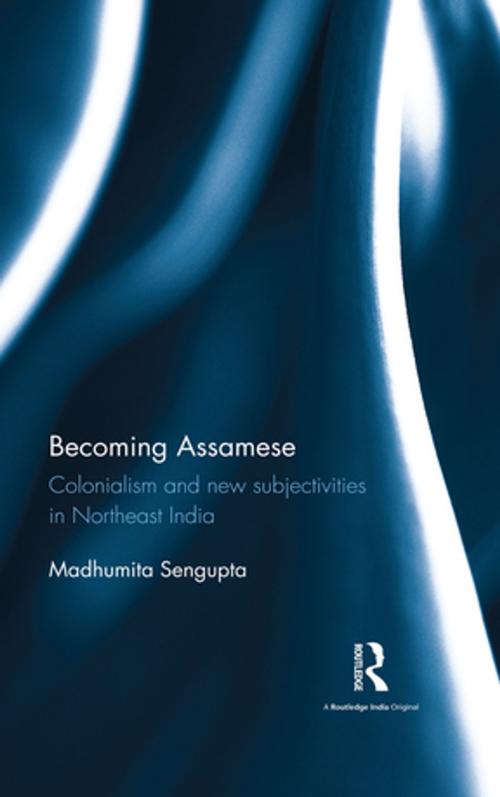Becoming Assamese
Colonialism and New Subjectivities in Northeast India
Nonfiction, History, Asian, India, Social & Cultural Studies, Social Science, Sociology, Political Science| Author: | Madhumita Sengupta | ISBN: | 9781317197768 |
| Publisher: | Taylor and Francis | Publication: | May 12, 2016 |
| Imprint: | Routledge India | Language: | English |
| Author: | Madhumita Sengupta |
| ISBN: | 9781317197768 |
| Publisher: | Taylor and Francis |
| Publication: | May 12, 2016 |
| Imprint: | Routledge India |
| Language: | English |
This book explores the making of colonial Northeast India and offers a new perspective to the study of the Assamese identity in the nineteenth century as a distinctly nineteenth-century cultural phenomenon, not confined to linguistic parameters alone. It studies crucial markers of the self — history, customs, food, dress, new religious beliefs — and symbols considered desirable by the provincial middle class and the way these fitted in with the latter’s nationalist subjectivities in the face of an emphatic Bengali cultural nationalism. The author shows how colonialism was intrinsically linked to the assertion of middle class intelligentsia in the region and was instrumental in eroding the essential malleability of societal processes nurtured by the Ahom state.
Rich with fresh research data, this book will be useful to scholars and researchers of history, political science, area studies, and to anyone interested in understanding Northeast India.
This book explores the making of colonial Northeast India and offers a new perspective to the study of the Assamese identity in the nineteenth century as a distinctly nineteenth-century cultural phenomenon, not confined to linguistic parameters alone. It studies crucial markers of the self — history, customs, food, dress, new religious beliefs — and symbols considered desirable by the provincial middle class and the way these fitted in with the latter’s nationalist subjectivities in the face of an emphatic Bengali cultural nationalism. The author shows how colonialism was intrinsically linked to the assertion of middle class intelligentsia in the region and was instrumental in eroding the essential malleability of societal processes nurtured by the Ahom state.
Rich with fresh research data, this book will be useful to scholars and researchers of history, political science, area studies, and to anyone interested in understanding Northeast India.















